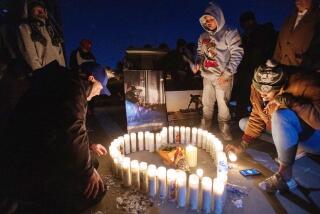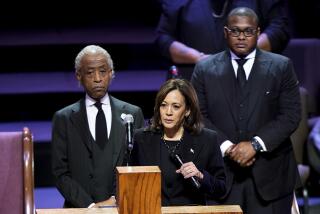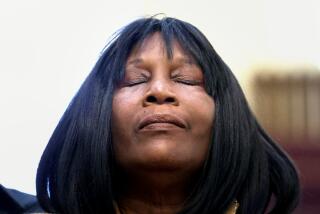George Floyd’s brother tells the nation to stop rioting: ‘That’s not going to bring my brother back’
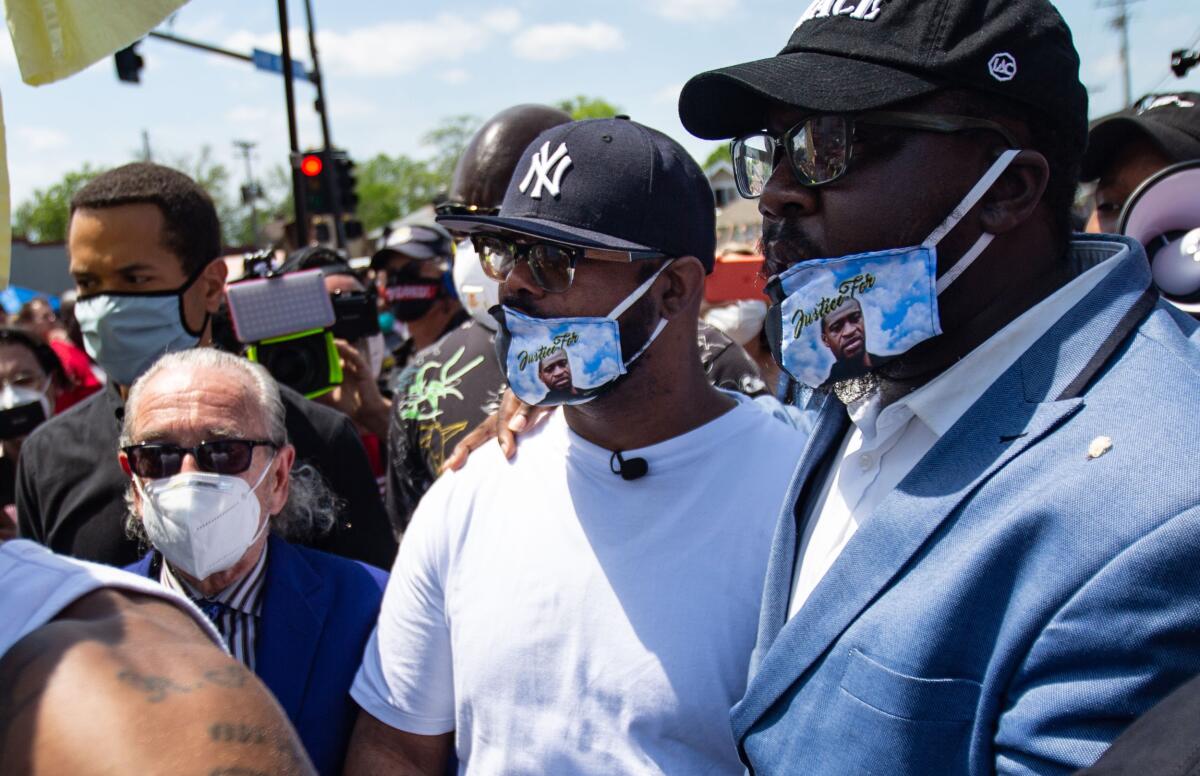
- Share via
MINNEAPOLIS — Against the backdrop of a nation in turmoil and a city in the throes of protest, George Floyd’s younger brother Monday knelt at the street corner where Floyd died at the hands of police one week ago.
Terrence Floyd arrived from Brooklyn wearing a mask bearing the image of his older brother and a reference to his last words, a rallying cry for demonstrators across the country against police brutality: “We can’t breathe.”
Floyd made his way through the crowd of several hundred supporters shortly after noon, shielded by a security detail wearing Black Lives Matter T-shirts. In a scene fitting to the times, he was flanked by a lawyer who has handled police brutality cases, a pastor and a local activist.
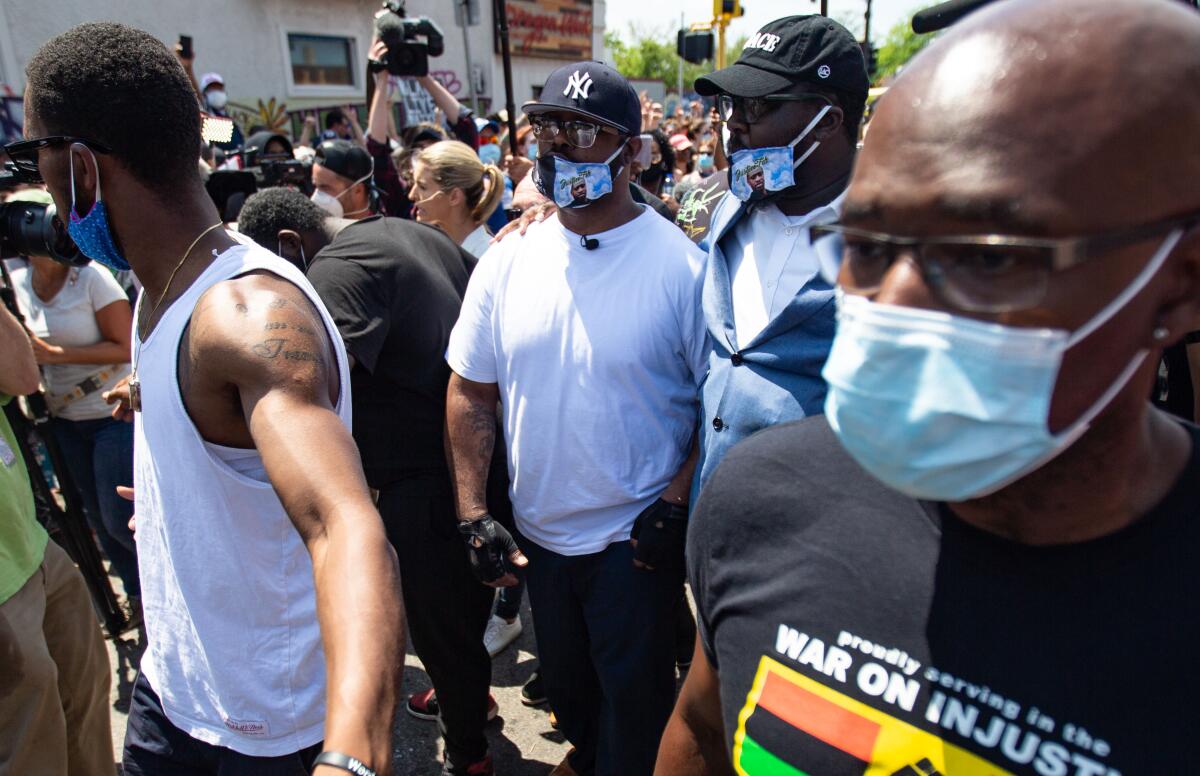
Floyd paused first in front of a mural of his brother’s face on the wall of the convenience store where George Floyd had stopped before police were summoned to investigate whether he had paid with a counterfeit $20 bill. Flowers and notes of condolences were piled at the foot of the mural; Floyd asked that no one tread on them.
He bowed his head and wept.
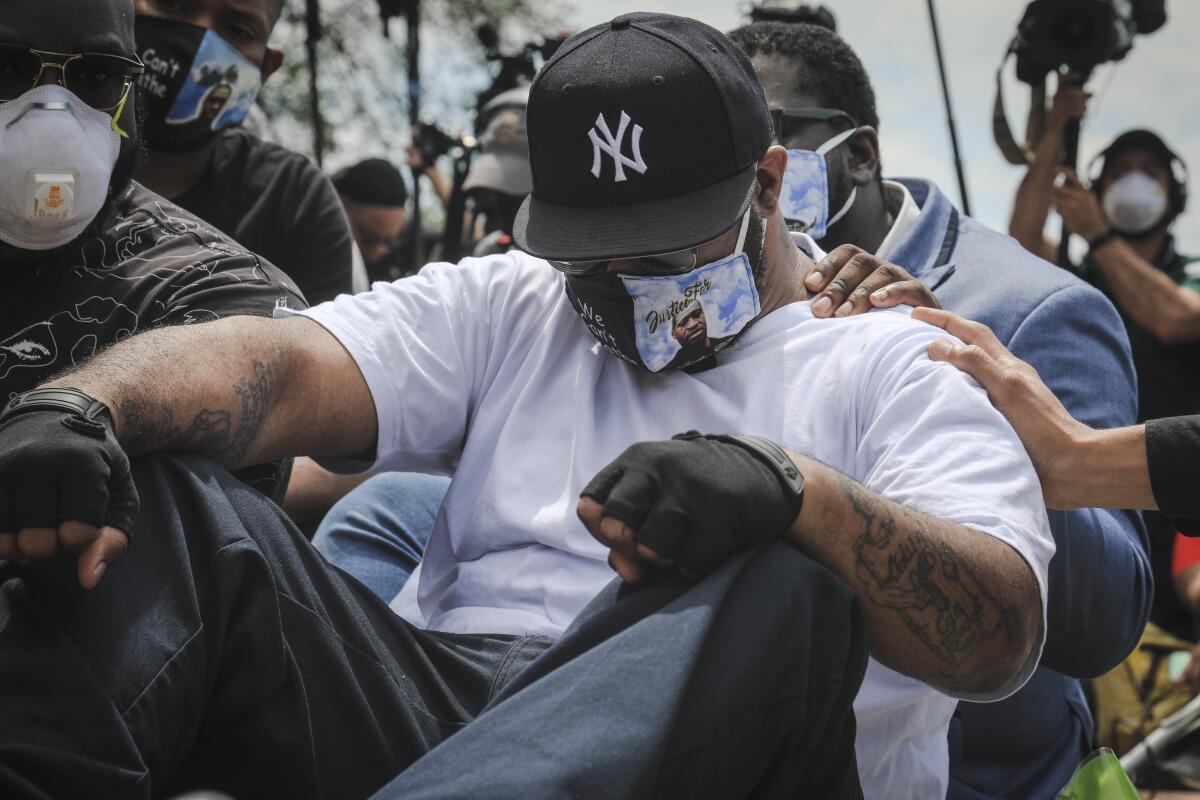
Then he moved on to the corner where police handcuffed his brother and held him on the ground, kneeling on his neck for nearly nine minutes, as was captured on the chilling videos seen round the world.
Floyd knelt. So did the crowd. At first, they chanted George Floyd’s name. Then the street fell silent. The pastor put his hands on Floyd’s shoulders. He shook his head and cried some more.
Someone shouted, “We’re here with you, brother!”
After about nine minutes, Floyd rose. The pastor beside him took hold of a protester’s bullhorn.
“We came in solidarity with those who have been in the streets peacefully protesting,” said the Rev. Kevin McCall, a civil rights activist from Brooklyn who wore a baseball cap labeled “Peace.”
“We’re sending a message to people all over this country: Don’t stop protesting,” he said.
The crowd began to chant, “Lock up all four” — a reference to the four officers who restrained George Floyd, 46. All were fired, but only one, Derek Chauvin, 44, was charged with murder last week.
An autopsy commissioned by the Floyd family found he died by asphyxiation caused by compression to the back and neck.
“We will not rest until they get locked up,” McCall said.
Terrence Floyd took the bullhorn to condemn the looting and rioting that followed his brother’s death. He did not want fire and violence to obscure the deeper meaning that could be realized from his family’s tragedy. He wanted resolution, but one not marred by fury.
“I’m not over here blowing up stuff,” he said, impassioned. “What are y’all doing? You’re doing nothing. That’s not going to bring my brother back.”
Someone in the crowd shouted, “That’s not us.”
“Whoever’s doing it — relax,” Floyd said.
He urged the crowd to respond to this latest case of police brutality in a constructive way.
“Educate yourself and know who you vote for. That’s how you’re going to get it. It’s a lot of us,” he said. “Do this peacefully.”
The crowd clapped.
“Before I go,” Floyd said, “What’s his name?”
The crowd chanted it — “George Floyd, George Floyd” — as they have at protests all week.
“Keep my brother’s name ringing,” he said.
Local activist Tommy McBrayer thanked Floyd for coming to his brother’s “gravesite” and “for blessing us with your strength, your courage and making yourself vulnerable.”
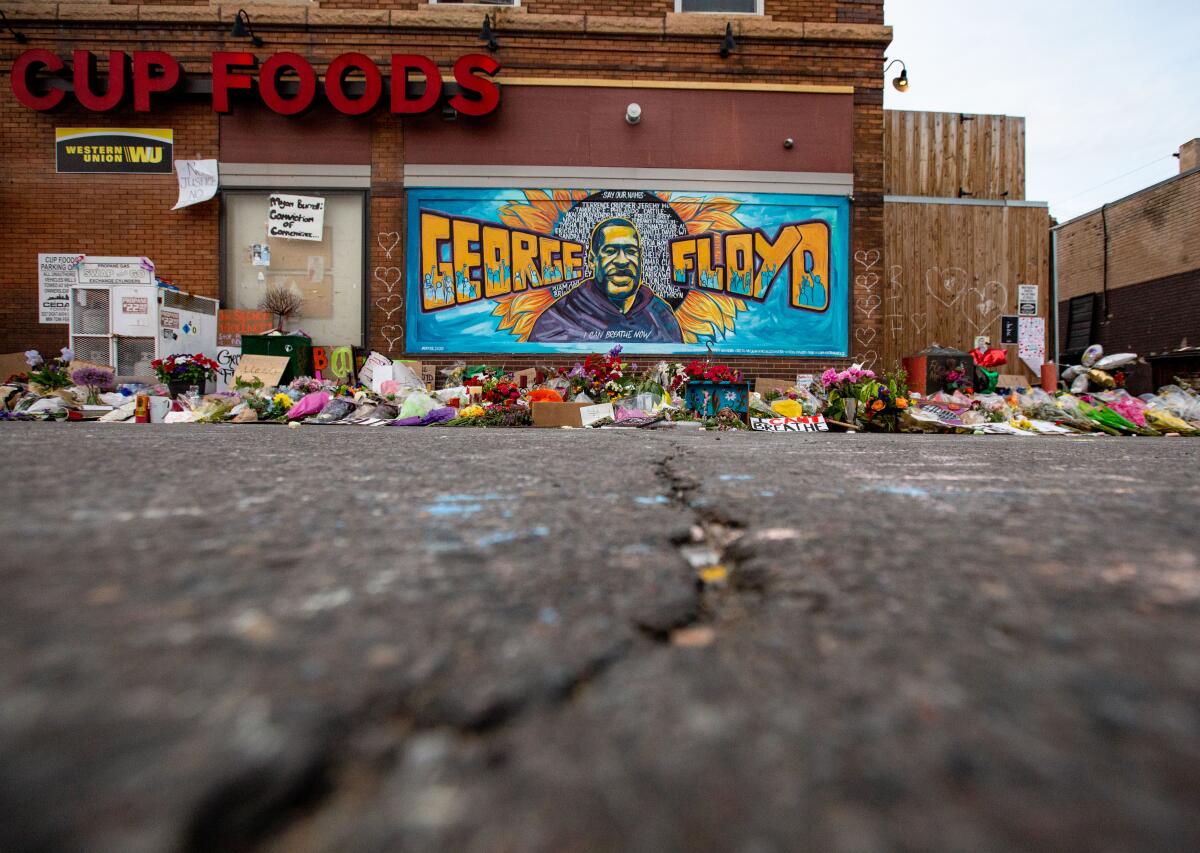
Floyd returned to his car, stopping briefly to admire a circle of flowers, notes and chalk messages at the intersection. Someone had spray-painted on a nearby fence “Rest in Power George Floyd.” Before Floyd got inside his car, he raised his fist to onlookers in a salute for black power.
His brother’s funeral is planned for Thursday in Houston.
“I feel like he got a little closure,” said McBrayer, 30, who grew up in the surrounding historically black neighborhood on the city’s south side.
He and his neighbors have defied the city’s curfew for the past two days to guard the site from looting and outsiders. His friend Duwayne Mitchell, 33, said he saw white men in unmarked vans wearing the Iron Cross insignia associated with white supremacist groups on the city’s north side late Sunday. McBrayer and others said they planned to continue to guard the memorial.
“We want to make this corner a historical place,” McBrayer said.
More to Read
Sign up for Essential California
The most important California stories and recommendations in your inbox every morning.
You may occasionally receive promotional content from the Los Angeles Times.

